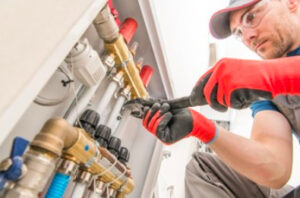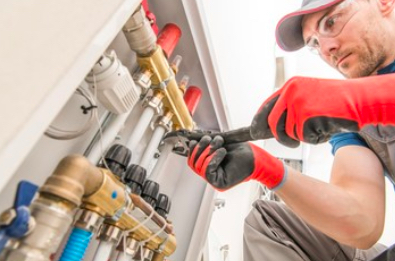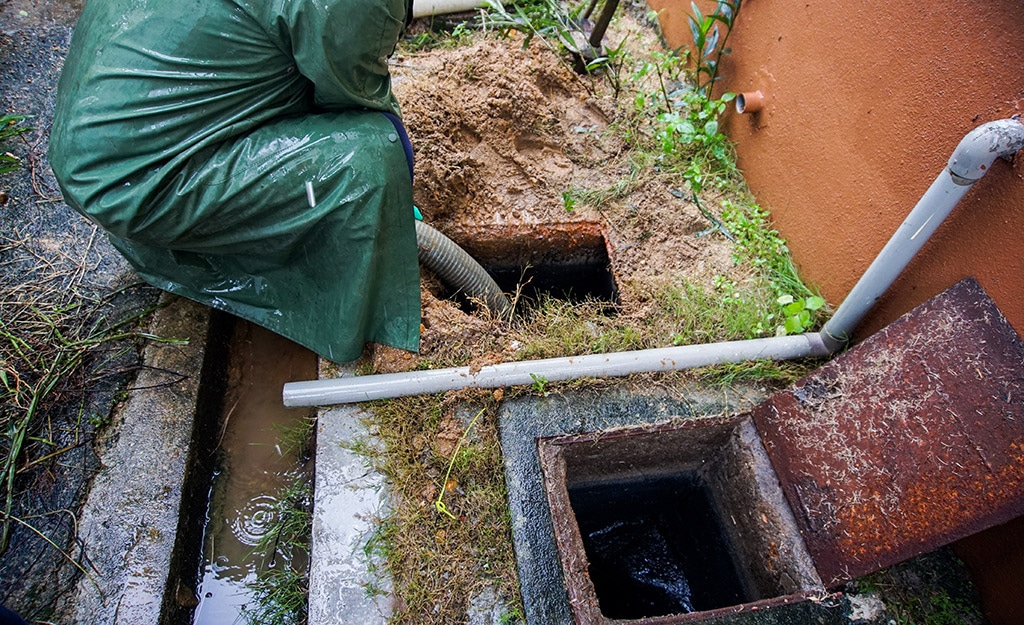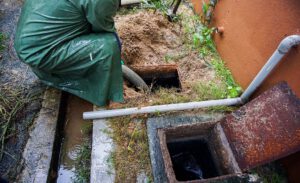If you need a plumber, HVAC design engineer or commercial plumbing expert, the expert listed below can help you. His extensive experience in the plumbing industry includes code and industry best practices, safety procedures, systems installation, and job-site process flow.  Plumbers are required in homes, businesses, and government buildings. They install and repair pipes, fix leaks, and install HVAC systems. They can fix almost any plumbing issue, including high-pressure hydraulic pumps. Plumbing specialists must have excellent manual dexterity, good eyesight, and a strong work ethic. Here are some tips to make your plumbing job easier.
Plumbers are required in homes, businesses, and government buildings. They install and repair pipes, fix leaks, and install HVAC systems. They can fix almost any plumbing issue, including high-pressure hydraulic pumps. Plumbing specialists must have excellent manual dexterity, good eyesight, and a strong work ethic. Here are some tips to make your plumbing job easier.
Expert plumbers are familiar with complex plumbing systems, including underground pipes and piping systems. These experts have the experience and training to efficiently diagnose and repair plumbing problems. These experts can help homeowners and business owners. Expert plumbers are licensed and insured to provide services for all plumbing needs. To learn more about plumbing services, visit our website.
Plumbing is a highly technical trade, requiring years of education and experience. Many jurisdictions require plumbers to have at least a Certificate IV in plumbing to be certified in their field. Plumbing technicians use various methods and equipment to join pipes and fittings together. This requires skills in coordinating various tools and understanding the function of different systems and components. Plumbing professionals also have to be knowledgeable about building regulations and safety standards. Having these skills is a major advantage when choosing a plumbing service.
A licensed plumber gets his products from professional supply warehouses. These warehouses sell exclusively to plumbing contractors and offer higher-quality products. You will not find many professional plumbing products in the general public. This is why a licensed professional should only perform sewer camera inspections. These expensive tools are not available to the public, and you can never be sure of the quality. Plumbing experts can accurately diagnose the problem and suggest the best repair. And, of course, experience means quality.
A plumbing expert should have extensive experience in repairing piping systems. You’ll find the best service through a reputable expert referral company if you’re looking for a qualified plumber to fix a leak in your plumbing system. Many of these companies will offer a list of plumbing experts who know each expert well. They can save you time by knowing the individual plumbers’ credentials and experience. If you’re looking for an expert witness in plumbing, don’t hesitate to contact ForensisGroup.
Commercial plumbers
A commercial plumber plays an important role in maintaining a business’ plumbing system. This is important because a clogged drain or gas line in an office building can affect more people than a single-family home. Commercial plumbers are trained to inspect gas lines for leaks and service drain and sewer lines. They can also help building owners install new sewer or natural gas lines. However, there are certain factors that commercial plumbers must consider before hiring them.
A plumber specializing in commercial plumbing should be licensed by the state where they work. However, state plumbing codes for commercial and residential properties may differ. Failure to meet these codes can result in significant fines and expensive repairs. Moreover, commercial plumbing requires more thorough inspections and pipe cameras. This makes commercial plumbing more complex than residential plumbing. Hence, a plumber should be familiar with the building’s codes to ensure compliance.
A commercial plumber must know the building’s construction and existing plumbing system. For example, a new production facility or business premises will require new gas and water lines. A commercial plumber can install new water pipes or replace old ones if needed. A commercial plumber may have to go through a formal bidding process to get the job. This may require the use of a mediator.
As the need for plumbing services increases in commercial buildings, the demand for commercial plumbers will grow. These professionals will have to handle maintenance and repair jobs for decades. Additionally, they may have to deal with old pipes more likely to break than new ones. Commercial plumbers often pursue an associate’s degree in plumbing technology. This type of training combines design, installation, and maintenance courses. Hence, a commercial plumber should be a jack of all trades.
Although commercial plumbing systems differ vastly from residential ones, they share some similarities. For example, a grocery store may have an elaborate irrigation system and multiple sinks. A restaurant may have many toilets. And skyscrapers may have hundreds of toilets and water heating systems. A residential plumber may be responsible for adjusting pressure levels or removing clogs. The primary difference between these two types of plumbers is the type of experience required.
HVAC plumbers
Both HVAC plumbers have high job opportunities. Plumbing professionals are in high demand, with the latter having a higher salary than the former. However, there is a lack of skilled workers in both fields. The demand for these professionals has grown in recent years, making it more difficult to find qualified candidates. Fortunately, job growth is expected in both fields. The following table lists the job outlook for plumbers and HVAC technicians. The average salary for both occupations is over $56,000.
Plumbing technicians are experts in the pipe systems in a home. They can unclog drains, stop leaks, and install new fixtures. Plumbing technicians work closely with HVAC systems and must have extensive knowledge of building codes. Some plumbers also work in construction, planning, and supervising construction projects. This type of work can be dangerous and requires extensive electrical knowledge. If you’re interested in a career in plumbing, consider getting additional training.
Both plumbing and HVAC jobs have many similarities. Each deals with different systems in a home, which helps if you have a background in both areas. Although plumbing is more common, HVAC is more varied. Plumbing contractors may specialize in HVAC, but HVAC technicians may specialize in a specific type of installation or repair. In addition to plumbing, HVAC technicians may also work in a construction specialist’s office, combining their skills and training to serve a wider range of customers.
HVAC technicians and plumbers both require extensive practical training. Apprenticeships typically last three to five years and require at least 8,000 hours of classroom and on-the-job training to reach journeyman status. Depending on the location, HVAC technicians and plumbers can take five years to reach journeyman status. These workers often have a bachelor’s degree in plumbing or electrical technology. However, apprenticeships do not require the same high school education as plumbing and HVAC technicians.
Both types of technicians can earn between $50k and $45k per year. However, salaries will vary widely, depending on experience and location. Plumbing jobs also seem to have the worst job satisfaction and are the first to lose interest. Although the hourly wage is higher than plumbers, the differences are negligible. It is essential to note that this is a median salary subject to change. Therefore, plumbers should always be prepared for a range of job satisfaction and pay.
HVAC design engineers
Most employers require HVAC design engineers to have a bachelor’s degree in mechanical engineering or equivalent work experience. They also typically require at least a few years of experience in the field, though the exact amount of experience varies widely. Many employers offer on-the-job training, where engineers become familiar with the company’s standards and codes. This can be helpful, but engineers often begin their careers without this experience. Therefore, training for HVAC design engineers is a great choice for those who want to start their own business.
In addition to earning a bachelor’s degree in HVAC engineering, prospective HVAC design engineers should consider becoming certified. Professional certification is a great way to guarantee that your work is of the highest quality, meets local regulations, and complies with the relevant codes and standards. It also enhances your professional standing among peers. For example, the American Society of Heating, Refrigeration, and Air Conditioning Engineers offers certifications for HVAC engineers.
HVAC design engineers should have excellent math skills. They should also be familiar with building codes. Computer-aided design software is essential, as is familiarity with building codes and blueprints. Lastly, they should have a strong sense of time management. Knowing how to work with different people, from construction workers to owners, is important. There are many different ways to become a successful HVAC design engineer. So, which one is right for you? Here are some details about the career and the educational requirements.
While HVAC design engineers will work in HVAC companies, the best way to get into this field is to attend college. They should have at least a Bachelor’s degree in mechanical engineering. A bachelor’s degree in mechanical engineering will help them find jobs, but the experience will allow them to be more flexible and gain a higher salary. In addition to a Bachelor’s degree, HVAC design engineers should have at least three years of professional experience and strong communication skills.



